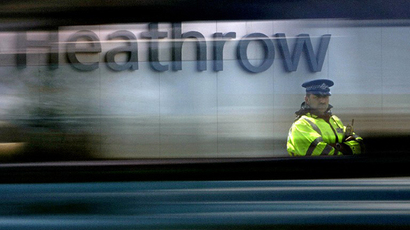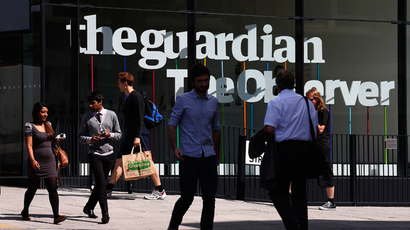UK operates secret Middle East web surveillance base - Independent citing Snowden
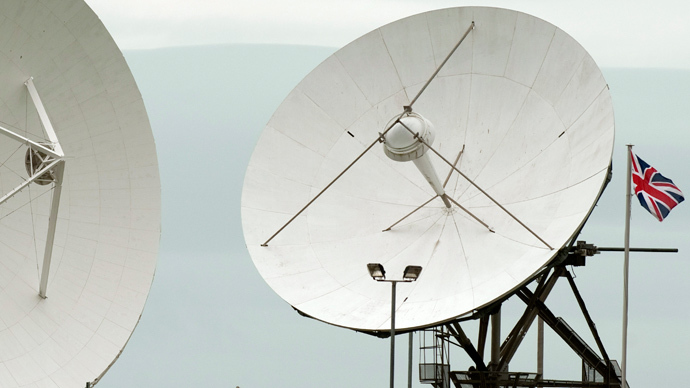
The UK has been working on a secret Middle East web surveillance base which is a part of a $1.5 billion project, a new report suggests. It intercepts and gathers emails, telephone calls, and web traffic for Western intelligence.
The secret internet-monitoring project is still a work in
progress and is being organized by the UK’s Government
Communications Headquarters (GCHQ), according to Edward Snowden’s
leaked documents, as studied by The Independent.
UPDATE: Later on Friday, the Guardian published a comment piece by Glenn Greenwald
dismissing the possibility that Snowden may have been the source
of the leaks.
The Independent's report says that the intelligence station can intercept data both by satellite and underwater fiber-optic cables that pass through the Middle East. The data will then be copied into large computer storage “buffers.” After that, it can be analyzed and passed on to CGHQ, where it later can be shared with the National Security Agency (NSA).
The UK argues that the base is central for the West’s “war on terror” and helps with “early warning” when it comes to possible attacks. It can also gain access to submarine cables passing through the region.
British intelligence sources maintain the base is used strictly to monitor “security, terror and organized crime.”
In its article, The Independent made clear that it was not revealing the exact location of the base. It did say that it received the information from the 50,000 top-secret GCHQ documents leaked by Snowden, many of which the whistleblower downloaded from “an internal Wikipedia-style information site called GC-Wiki” in 2012.
The UK’s main concern is that the location of the secret Middle East web intelligence base will become known in the public domain, according to the newspaper.
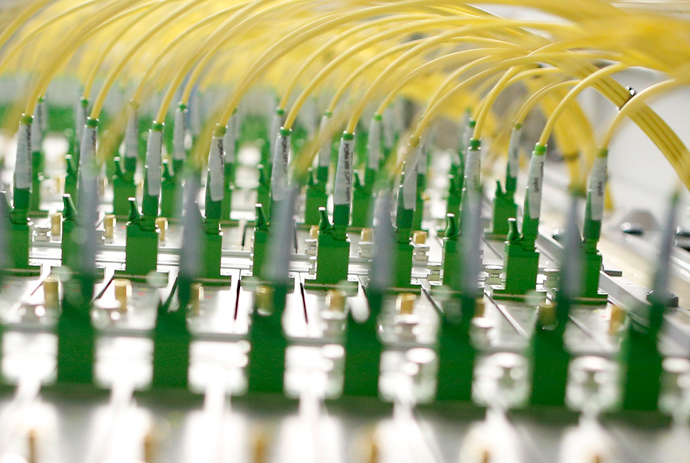
The base is part of a larger US$1.5 billion surveillance project code-named “Tempora,” whose overall goal of global interception of digital communications was revealed earlier though Snowden’s leaked documents.
The Middle East base was created after a warrant was signed by then Foreign Secretary David Miliband. It gave permission to the GCHQ to monitor, store, and analyze data that passed through the fiber-optic cables that link up the internet around the world.
Issued certificates allow GCHQ to collect information about the “'political intentions of foreign powers,' terrorism, proliferation, mercenaries and private military companies, and serious financial fraud.”
Certificates are reissued every six months and ministers have the authority to change them at will.
GCHQ was essentially given the power to monitor anyone overseas or communicating from overseas, bypassing all other legal checks and balances in place in the UK.
The budget of the Middle East base alone is not known.
The revelation follows the Metropolitan Police’s launch of a
terrorism investigation into information found on the computer of
Guardian journalist Glenn Greenwald’s partner, David Miranda. The
data, along with all of Miranda’s electronic devices, was seized
during a nine-hour detention in Heathrow airport on Sunday.
British authorities held Miranda under Schedule 7 of the UK’s
Terrorism Act.
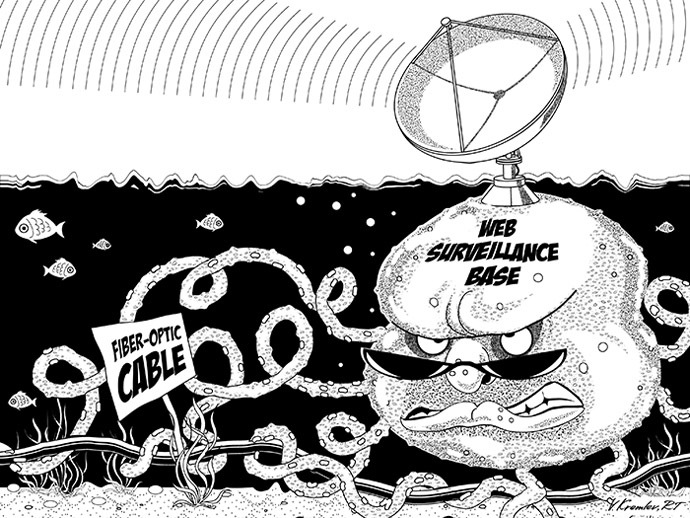
British police said the information found is “highly sensitive,” the disclosure of which “could put lives at risk.”
The Guardian newspaper took the case to court on Thursday to
demand the materials seized from Greenwald’s Brazilian partner be
protected by injunction.
The Independent presumed that The Guardian had acceded to the
government’s request not to publish any material contained in the
Snowden documents that could damage national security.
The court ruled on Thursday that British authorities can sift through electronic documents seized from Miranda, in the interests of “national security.” The two judges gave authorities until August 30 to analyze “thousands” of documents, according to a police lawyer.













